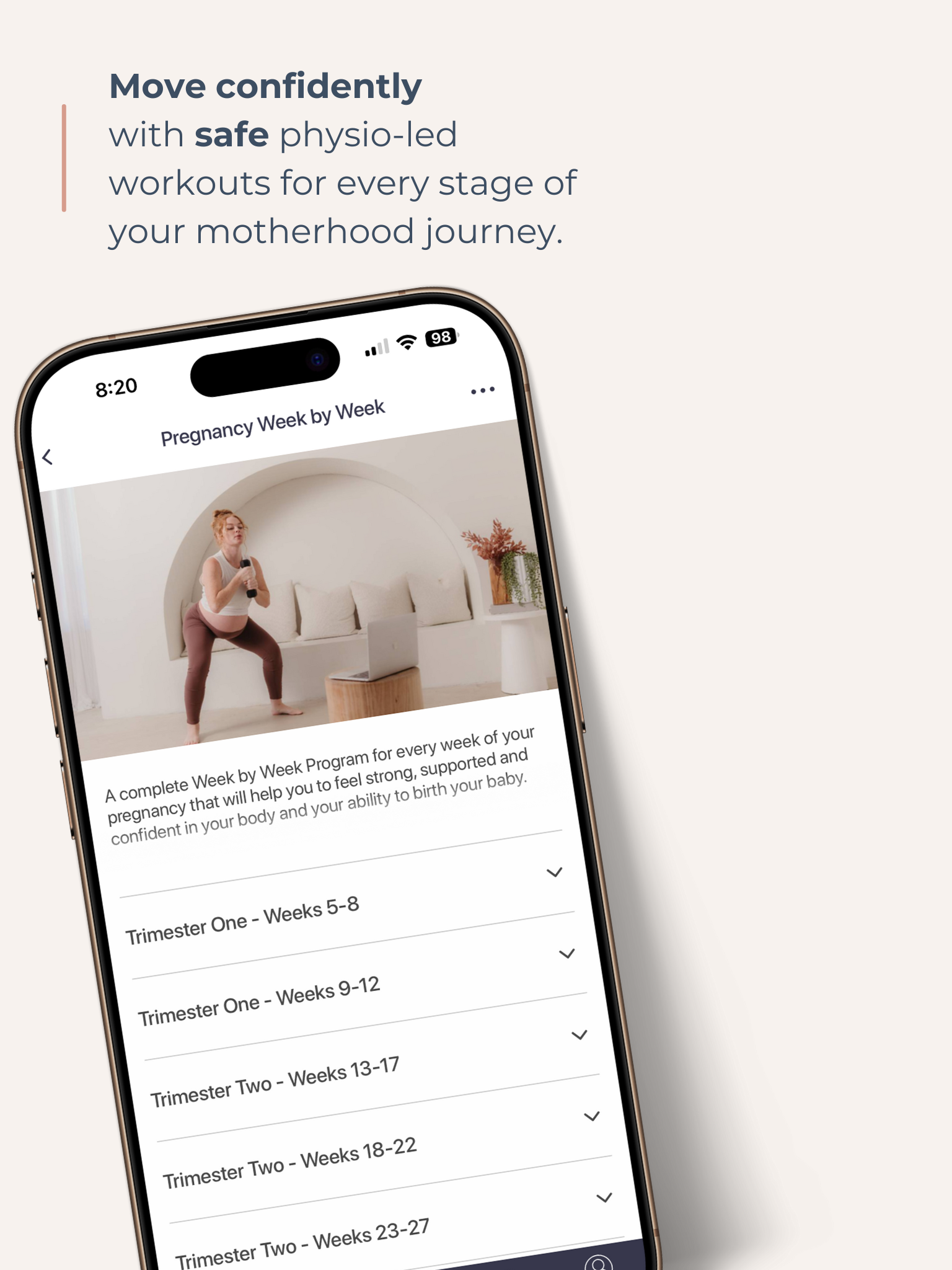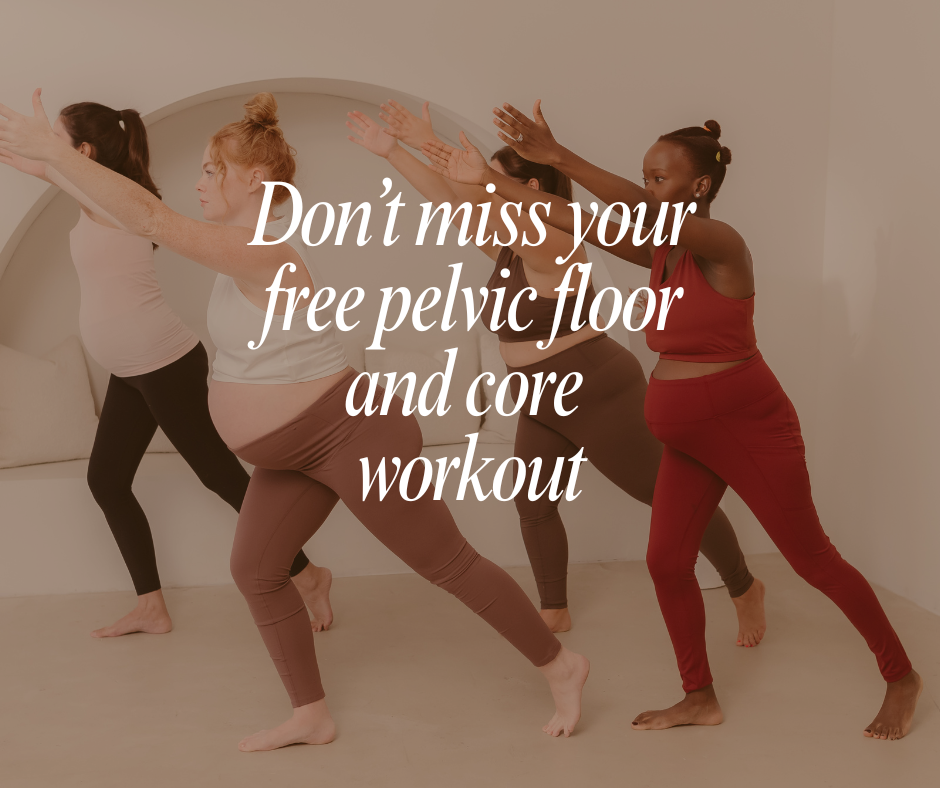Managing Pregnancy Anxiety: Practical Ways to Support Your Nervous System

Written by Dr Rosie Pajak - Perinatal Psychologist and Founder of The Birth Healing Collective
We often think of anxiety as something that happens inside our minds - whirling thoughts, negative beliefs, or overwhelm from the mental load. But if you’ve ever felt your heart racing, chest tightening or stomach loosening, you’ll know anxiety is an emotion that very much lives in the body.
As a perinatal psychologist, I often support mamas who feel anxious during pregnancy. We’re told that pregnancy is meant to be a dreamy, hope-filled, happy time. And it can be, some days! But the reality is that the uncertainty and anticipation of intense experiences and significant change ahead can feel overwhelming for many women.
While a certain level of worry, stress, and anxiety is normal during pregnancy (there’s a lot to think about!), around one in five women experience antenatal anxiety. This is anxiety that significantly affects your daily life. It might look like worrying almost every day, feeling constantly tense, on edge or irritable, or experiencing panic attacks. When anxiety goes into overdrive, pregnancy becomes even more exhausting.
Taking pregnancy anxiety seriously is important, particularly as it can increase the likelihood of developing postnatal depression or other mental health issues after birth. Support during pregnancy can make a world of difference, helping you make sense of your anxiety and explore what’s underneath it, whilst developing practical coping strategies for this important time.
When it comes to coping with anxiety, I think there's a risk of over-focusing on the fears and worries. It’s easy to get caught up trying to reassure yourself by battling with the “what if” thoughts that arise from the unknowns of pregnancy and birth.
Whilst it can help to have strategies to work with your mind and thoughts, I believe it’s just as important to tend to your body. At the end of the day, we ultimately want to lower anxiety to feel more grounded, relaxed and calm. Sometimes, working with your nervous system is the most direct path.
Managing Pregnancy Anxiety - Practical Tools to Support your Nervous System

Step One: Tune in to your body.
On anxious days, we often become disconnected from our bodies, spending more and more time thinking, analysing and problem-solving. Instead, try gently bringing your attention down to your body and simply notice what’s happening there.
It can feel different to observe these sensations without trying to change anything. A little bit of space opens up when we just notice, gently and without judgment.
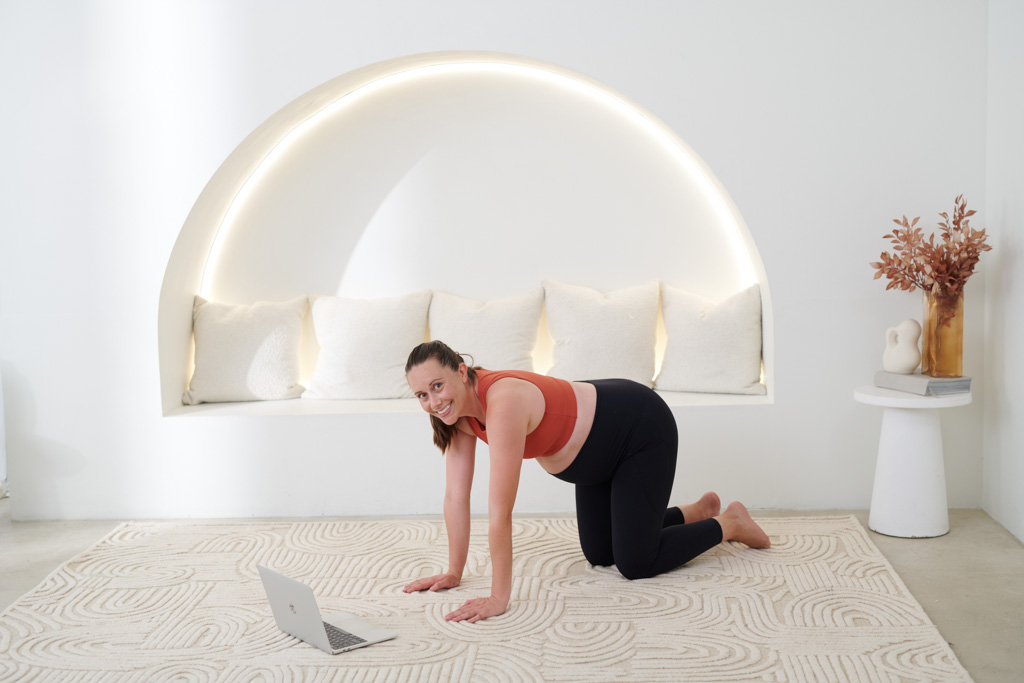
Step Two: Label what you notice.
Mindfully naming what you’re feeling in your body helps create a little separation from the experience. Starting with ‘Right now, I notice…’ is a gentle reminder that these emotions and sensations are temporary. Not every day, hour, or minute will feel like this.
I also like to add ‘…and that’s okay’. This small phrase reminds us that our bodies often feel better when our emotions are allowed. We can practice ‘making room’ for uncomfortable sensations and softening around them.
“Right now, I notice that familiar tightness in my chest. I feel some anxiety here - and that’s okay”.
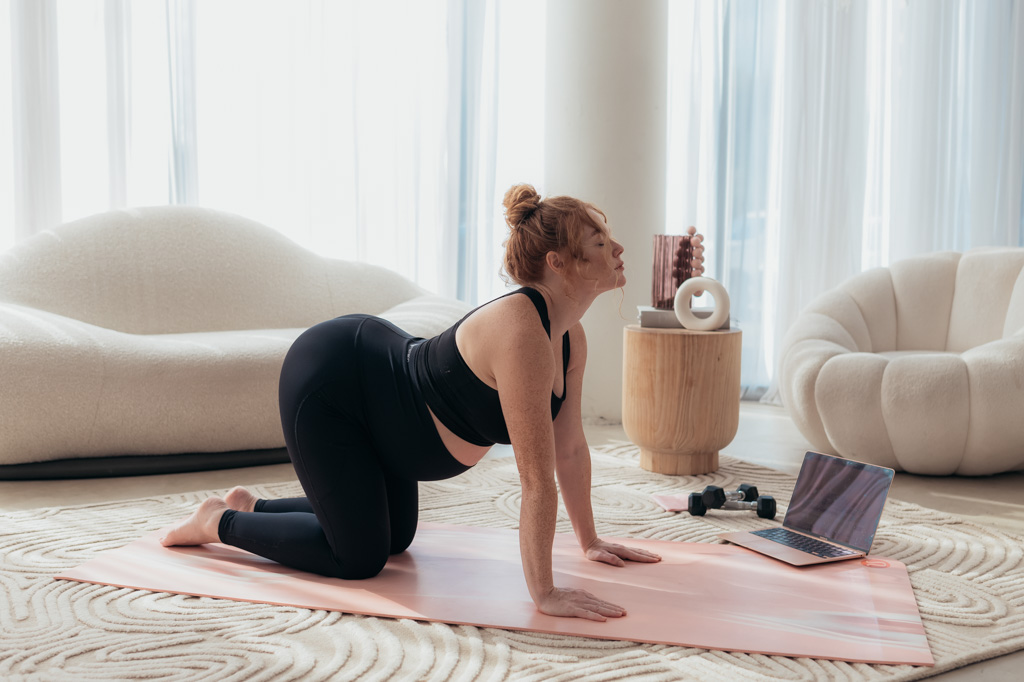
Step Three: Send Support Inwards.
Offer yourself a moment of compassion for everything you are dealing with right now. Our brains and bodies respond to self-compassion on a physical level, as it activates the neural networks associated with comfort and soothing.
“This is hard – I’m going through a lot”.
Remind yourself you are not alone in how you feel. Many other women experience similar emotions in their pregnancies.
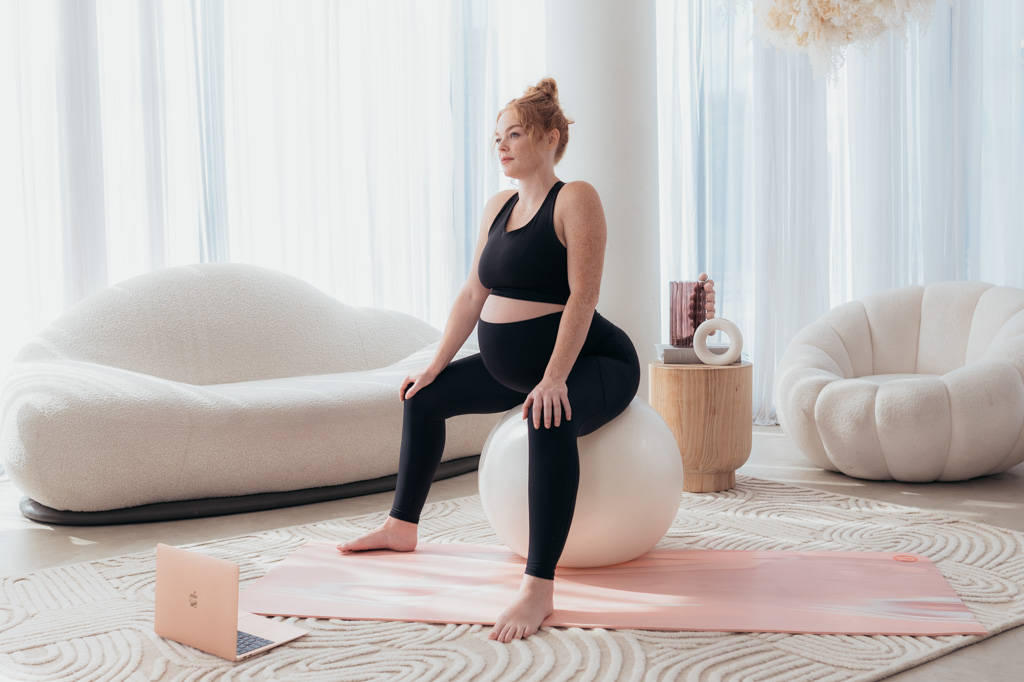
Step Four: Soothe Your Nervous System.
Now you’ve connected with your body in this warm, supportive way, it may feel a little easier to soothe your body into a calmer state. There are many ways to do this, but my favourites involve breathing exercises, imagination and the five senses.
Breathing exercises offer us a powerful way to influence your nervous system. When anxiety speeds everything up, slowing the breath sends calming signals throughout the body. By deliberately slowing down your breathing rate and lengthening your exhalation, your nervous system can ‘down-regulate’, slowing your heart rate and blood pressure too.
As you breathe, you might like to imagine somewhere you can feel totally calm – real or imagined. Tune into the details, what can you see, hear, smell and feel in your peaceful place? Notice how your body responds.
If you prefer, you can stay grounded in the present by creating some strong sensations to focus on in the here and now. A glass of cold water or an ice pack grabs attention, whilst a hot shower or a warm heatpack taps into your body’s sense of comfort. Pleasant or familiar scents can be deeply soothing. Gently rhythmic movement, such as swaying from side to side, or shifting your weight from one foot to the other, often brings a sense of calm.
Explore what feels good for you and you’ll soon learn what helps your nervous system to return to calm on anxious days. And if the anxiety is still higher than you’d like? You don’t have to keep pushing through it.
Support is available, and it’s important to take care of your mental health as well as your physical health during pregnancy.
Rosie
For additional support in pregnancy
For When – 1300 24 23 22 – A free service helping you navigate you to the critical mental health and wellbeing services you might need at this challenging time in your parenting journey. https://forwhenhelpline.org.au/
Perinatal Anxiety & Depression Australia (PANDA) 1300 726 306 – A free perinatal mental health hotline. PANDA offers free telephone support counselling. They also provide information on antenatal and postnatal depression on their website https://www.panda.org.au/
Centre for Perinatal Psychology – a national network of psychologists dedicated to supporting mothers, fathers, infants, couples and families during the perinatal period https://www.cope.org.au/
About Dr Rosie
Dr Rosie Pajak is a perinatal clinical psychologist and founder of The Birth Healing Collective. She has a range of resources and supportive programs for parents preparing to give birth again after traumatic birth experiences available here. You can follow her @birth_healing_collective.
Get your Free Physio-led Pelvic Floor and CoreWorkouts
Download three free videos for either pregnancy or postpartum.


